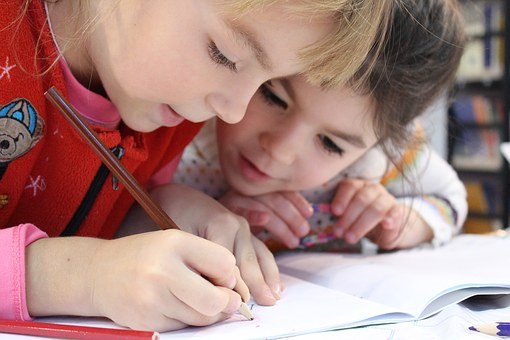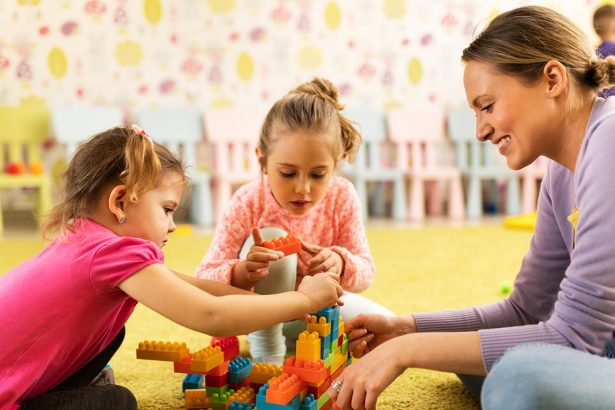Definition of self-esteem
Self-esteem is the set of “beliefs” or impressions we have of ourselves. The way we define ourselves influences our attitudes and behaviours and has a direct impact on the management of our emotions and our relationships. Healthy self-esteem is a child’s shield against life’s challenges. Children who feel good about themselves are better able to cope with adversity and better resist negative pressures. In general, these children enjoy life, they are realistic and optimistic people. Self-esteem can also be defined as the combination of feelings of competence with feelings of being loved. A child who is excited about an achievement of his but s/he does not feel loved can eventually feel low self-esteem. Similarly, a child who feels loved but s/he does not believe that s/he has abilities may also end up with low self-esteem. Healthy self-esteem is the result of a proper balance between the two.
When and how does a child’s self-esteem develop?
The model of self-esteem that a child will develop begins very early in life. For example, when an infant manages, after much and hard effort to bring the spoon to his/her mouth to eat, s/he will experience a sense of fulfillment, which strengthens his/her self-esteem and teaches him/her the attitude, “I am capable – I can I do it – I can eat on my own “.
How does the child perceive his abilities?
During this process of effort – failure, new endeavour – success, the child acquires a perception of his/her abilities, while at the same time creating an image of himself/herself based on his/her interactions with other people.
The fluctuations of self-esteem
Self-esteem fluctuates as a child gets older. The feeling of self-esteem often changes and adapts, as it is influenced by the new experiences and perceptions of the child. Children with low self-esteem often view challenges as a source of stress and frustration. Children who feel bad
about themselves have a hard time finding solutions to their problems. The main axis on which children, with low self-esteem, focus is that of repeating / rotating negative thoughts of self-criticism, where they speak in a particular language to themselves, saying that they are worthless or that they can do nothing right. As a result, they become passive or show withdrawal, sadness or depression.
Signs of unhealthy self-esteem
A child with low self-esteem may not want to try new things. Often, he may speak negatively about himself/herself, saying, for example, “I’m a fool,” or “I will never learn to do this.” Also, this child may not be able to manage disappointment, may give up easily, or wait for someone else to take control. Furthermore, the child with low self-esteem tends to be highly critical of himself/herself and is easily disappointed with himself/herself. In addition, he sees temporary failures as permanent, unbearable situations. In other words, the feeling of pessimism dominates his/her life.
The behaviour of parents
The right behaviour of parents contributes to the acquisition of self-esteem in children. For this, parents need to be careful with what they say. Children are very sensitive to the words of their parents. Also, parents should have as their tactic to praise their child, not only for his/her successes, but also for every effort s/he makes and, above all, to be sincere. In addition, it is wise to reward their children for their hard work regardless of the outcome. In addition to the above, they have a duty to set a good example. If parents are overly hard on themselves and pessimistic about their strengths and weaknesses, their child will copy them. I recommend to parents to cultivate their self-esteem because, in this way, their child will have a great role model to follow. Of course, one of their goals is to identify their children’s misconceptions about themselves – perceptions can be about perfection, attractiveness, abilities or whatever. Parents need to keep in mind that their misconceptions can take root and become a reality for the child. For example, a child who is a good student but has a particular difficulty with Maths, may say, “I’m a bad student”. Parents should be aware that this perception is not just a misconception, it is a view that can make the child prone to failure. Therefore, they should encourage their child to see the situation in its true dimensions. A helpful response to the statement, “I’m useless. “I will never do my Maths – every day I get worse”, would be, “You are a good student. You are doing very well at school. Mathematics is just a subject to which you should devote more time. We will help you and you will see that together we will succeed “.
First of all, I recommend to parents:
- to be spontaneous and affectionate with their child / children
- to hug their child / children
- to offer a lot of love to their children because in this way they greatly enhance their self-esteem
- to tell their child / children that they are proud of him/her/them
- to reward the child often and with sincerity without overdoing it because children immediately understand when something is said from the heart and when it is a pretense
- to help children love themselves. This means that they help them to step on their feet and to realize, little by little with humility, what their strengths and weaknesses are
- to place positive labels on their children because in this way they help them to love themselves
- to learn to talk with their children and not to their children
- to sit next to their children when talking to them, to show respect for what they have to say to their children and encourage their every effort
- to adopt and apply a consistent attitude towards their children and speak to them in a sweet voice, regardless of their own mood and lack of time
- to give choices to their children, thus giving them the opportunity to decide and, therefore, to build and boost their self-confidence and autonomy
- to use the words “I can” often because it carries positive energy
- to use and teach their children to do the same with the words “Please” and “Thank you”
- to accompany their “No” with justification
- to make sure there is a consensus in the house. Also, parents must share the responsibilities of the children
Where are good relations based on?
- Stability
- Consistency
- Respect
- Sincerity
What does stability mean?
Stability means faith in our principles and values. These principles must be instilled in our children who must also be helped to realize that matters of principle are not being haggled over. It is good to remember that if we ever have to change our principles, we must explain this change to our children with arguments, not lectures.
What does consistency mean?
Consistency basically means that our “Υes” is “Υes” and our “Νo” is “Νo”. Besides, parents must always keep their promises. If a promise they have made cannot be fulfilled, then they should speak and explain to their children immediately and make arrangements together so that it can be kept as soon as possible
What does respect mean?
Respect for children means that we talk to them and treat them the same way we want them to treat us. Respect for children also means listening to them carefully and looking at them as they speak to us.
Why does sincerity play an important role in parent-child relationships?
- Parents need to be sincere with their children and talk to them using vocabulary based on the children’s age. In other words, they explain situations and answer their children’s questions, using understandable language and giving as many examples as they need to be understood.
- Children need to know that the right reaction depends on the size of the act and not on their own emotional state
Is it good for parents to comment? Yes, but how?
- They must make positive, fair comments
- They must never label their children according to what they have done but separate the act from the child
- If they say to the child, “You always react like crazy”, s/he will start to think that s/he does not know how to control his/her outbursts. So it is better to say to him/her, “You were very angry with your brother, but I appreciate that you did not insult him and did not hit him”. In this way they recognize the child’s feelings, encouraging him/her at the same time to make the right choice concerning his/her behavior next time.
Violence is prohibited
Violence for the “good” does not do any good. If the parents beat the child, this child gathers the violence inside him/her and, later, s/he will hit his/her little brother, his/her cousin, s/he will break a toy to bring out the violence.
Creating a safe family environment
- A child who does not feel safe or who is being abused in their own home, through negative behaviors and comments, will suffer greatly from feelings of low self-esteem.
- A child exposed to constant parental quarrels may develop depression and withdrawal. Parents need to remember that they must always respect their child.
- I recommend that parents be always mindful of signs of abuse in their children which may be caused by others, of learning or behavioural problems at school or of peer problems, and of other factors that may affect the child’s self-esteem.
- It is the duty of parents to deal with all these issues with sensitivity but also with immediacy.
Parents need to help their child have constructive experiences
Activities that encourage cooperation rather than competition are particularly useful in boosting self-esteem. For example, if an older child helps a younger one learn how to read, the results can be miraculous for both children.
General tips for parents
I call the parents:
- To communicate with their children with genuine interest
- To show their children that they are happy to talk to them and that they do not do this as a task
- To express their love with hugs and carressing
- To always focus on their children’s positive characteristics and charismas
- Not to impose their views on their children.
- To strive to be compromising and truly democratic
- To explain to them that if someone is angry with them or makes fun of them or attacks them, it does not mean that they are to blame or that they are bad children
- To encourage their children to accept without agitation both praise and ridicule
- to encourage their children to express their views with sincerity and to express their feelings clearly
to help their children develop self-control, to choose their emotional reaction instead of reacting impulsively to the challenges of the environment - to reward every little progress they make
- to strengthen the effort they make, even if they do not succeed
- to encourage them to respect and value themselves, regardless of their performance
- to help their children understand the aggressive challenges of others and to either deactivate or be indifferent to them
What is the difference between passive, dynamic and aggressive behaviour?
Parents need to explain to their children the difference between these behaviors:
Passive Behaviour:
- Insecurity, emotional blockage, submissiveness, fear
- My wants and needs are less important than those of others
Dynamic Behaviour:
- Defending and claiming my individual rights in a way that does not affect the other
- Sincere externalization of emotions
- My wants and needs are just as important as those of others
Aggressive Behaviour:
- Violation of the rights of the other, externalization of emotions through harassment
- My wants and needs are more important than those of others
Children copy their parents’ behaviour
- Parents should always keep in mind that their children copy and adopt their behaviours as well as the ways they handle situations.
- Therefore, they have a huge task to perform by setting a good example in terms of their behaviour when they have to express, for example, something negative or when they want to express their dissatisfaction
- Since their children copy them as role models, parental attitude must be acceptable and appropriate and characterized by respect, understanding and maturity otherwise they cannot demand it from their children
Also, the children will not just accept to be taught because they will come back, sooner or later, to tell them “Why should I behave like this since you do the exact opposite” or, even, as they grow up, they may use the Cypriot proverb, ” “Teacher you taught all this. However, you yourself did not implement what you taught”.
Written by Gabriella Philippou
Psychotherapist – Counsellor, Focusing Experiential Therapist, Trainer – Coach[/vc_column_text][/vc_column][/vc_row]




